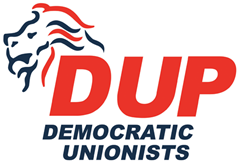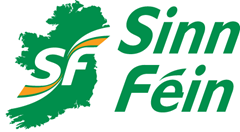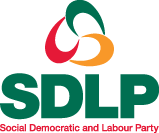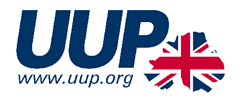Manifesto summary
An updated overview of the Assembly parties’ policies on economics, finance and business following the election.
 Enterprise, Trade and Investment Minister: Arlene Foster MLA
Enterprise, Trade and Investment Minister: Arlene Foster MLA
Assembly Private Secretary: Alastair Ross MLA
Finance and Personnel Minister: Sammy Wilson MP MLA
Assembly Private Secretary: Simon Hamilton MLA
Westminster Business, Innovation and Skills Spokesman: David Simpson MP
The DUP’s Assembly manifesto put forward ambitious goals for economic recovery. On corporation tax, its aim is a 10 per cent rate.
Reducing “crippling” air passenger duty rates is also a priority as these “risk diverting business” to the Republic and place long-haul routes such as Belfast to New York under threat.
Central to expanding the economy, the party said, is increasing exports by 50 per cent over the next decade by supporting first-time exporters and assisting companies to diversify into new markets.
Developing the Belfast harbour area as a major offshore logistics centre is also on the agenda.
Most of the party’s commitments are consistent with its 2007 manifesto, which called for major reform of the planning system.
However, fresh ideas included using the MTV Europe Music Awards in November to promote the new Northern Ireland and Belfast as a city of music.
In its 2010 Westminster manifesto, the DUP highlighted the case for a special economic zone, where Northern Ireland would offer investors less regulation and lower taxes. Precedents include Aqaba, in Jordan, the Philippines’ Subic Bay and the London Docklands. The party also suggested a “substantial reduction” in UK-wide corporation tax.
 Assembly Economy and Finance Spokesman: Conor Murphy MP MLA
Assembly Economy and Finance Spokesman: Conor Murphy MP MLA
Oireachtas Finance Spokesman: Pearse Doherty TD
Oireachtas Public Expenditure and Reform Spokeswoman: Mary Lou McDonald TD Oireachtas Enterprise, Jobs and Innovation Spokesman: Peadar Tóibín TD
Sinn Féin’s focus is on producing an all-Ireland economic recovery plan, which would of course need Irish Government support.
By implementing the Review of Public Administration, savings of £400 million could be made, it suggests, and the establishment of the Education and Skills Authority would save £80 million over the next four years.
Introducing a pay freeze for public sector workers in the higher rate income tax bracket could also improve the province’s finances.
According to the party, a phone mast levy could generate as much as £160 million over the next four years. Additionally, an agreement with the credit union movement to create a £100 million social fund would help to grow indigenous business with social outcomes based on an “objective need”.
The theme of unity as an “economic imperative” was also evident in Sinn Féin’s 2010 Westminster manifesto. The party advocated entry into the euro in order to establish a single all-Ireland economy, despite criticising the economic constraints caused by the single currency.
 Enterprise, Trade and Investment Spokesman: Alasdair McDonnell MP MLA
Enterprise, Trade and Investment Spokesman: Alasdair McDonnell MP MLA
Finance and Personnel Spokesman: Dominic Bradley MLA
Westminster Treasury Spokesman: Mark Durkan MP
The SDLP’s Assembly manifesto calls for a recession recovery programme to be established − a package of ‘triage’ loans for businesses struggling to secure finance in the current banking environment.
The party calls for a review of the Reform and Reinvestment Initiative to renegotiate the borrowing limit with the Treasury. “By doubling the amount of money it can currently borrow, the Executive could access an extra £1 billion of funding over five years,” it states.
Any increase in borrowing should be invested in capital build projects, which would improve the manufacturing and construction sectors.
In its Westminster manifesto the party claimed that 42,000 jobs could be created by harmonising corporation tax across the island and implementing the Green New Deal. It also suggested more decentralisation of public sector jobs.
 Enterprise, Trade and Investment Spokesman: Mike Nesbitt MLA Finance and Personnel Spokesman: Leslie Cree MLA
Enterprise, Trade and Investment Spokesman: Mike Nesbitt MLA Finance and Personnel Spokesman: Leslie Cree MLA
The UUP’s Assembly manifesto says that promoting, advancing and embedding the culture of R&D could encourage more independent business and move away from reliance on public funding and support. It is also important to advance links between the further education college network and businesses, “ensuring that these colleges are at the negotiating table when indigenous companies and Foreign Direct Investors identify the skills they require from future work forces”.
Other economy boosting ideas include introducing a 5 per cent VAT rate on the repair, maintenance and improvement of domestic dwellings (a Westminster responsibility), the immediate publication of PPS 5 to support town centres and smaller retailers as well as incentives for businesses to invest in energy-saving technologies and environmental improvement.
 Enterprise, Trade and Investment Spokesman: Trevor Lunn MLA
Enterprise, Trade and Investment Spokesman: Trevor Lunn MLA
Finance and Personnel Spokeswoman: Judith Cochrane MLA
Alliance’s Assembly manifesto suggests some major changes to boost the economy, including setting up a ‘department for the economy’.
Designating Northern Ireland as an enterprise zone would help draw business to the province and improving access to finance would encourage more local business. It is “vital that banks work responsibly in local markets, playing a role in the development of a strong local business base”.
A speedier planning service is also necessary. The party is advocating a Bill to create national parks in Northern Ireland, to promote tourism and make better use of the natural environment.
Alliance supports extending small businesses rates relief and also proposes keeping any increase in rates at acceptable levels in and around inflation.
In its 2010 Westminster manifesto, the party focused heavily on business start-ups, R&D, and integrating economic and education policy. The document claimed that more research needed to be funded through the province’s two universities and incentivised within the private sector.
 Economy Spokesman: David Vance
Economy Spokesman: David Vance
Any attempt to grow the economy by linking it to the South is “madness”, according to the TUV. Instead the party aims to “plug” Northern Ireland into the British economy.
The TUV wants the Barnett formula changed to reflect socio-economic need, to benefit Northern Ireland. The party opposes devolving corporation tax as, in its view, this would undermine the fiscal union and deepen public spending cuts.
Businesses could also be boosted by privatising some basic public sector functions, including government PR and back office support. The whole public sector should be examined on value for money grounds.
 Similar to its 2010 Westminster commitments, the Green Party’s Assembly manifesto focused on championing the Green New Deal and improving energy efficiency.
Similar to its 2010 Westminster commitments, the Green Party’s Assembly manifesto focused on championing the Green New Deal and improving energy efficiency.
The party supports PPS 5 which would restrict out of town retail development and boost local town traders. A framework for a sustainable construction sector should be established. It also suggests that a Mourne national park would boost tourism and generate revenue.
It opposes a cut in the headline corporation tax (26 per cent) but would consider a cut in the SME rate (20 per cent). The party backs the 12.5 per cent rate in the Republic, as this is well-established and a raise could deter foreign investors.





